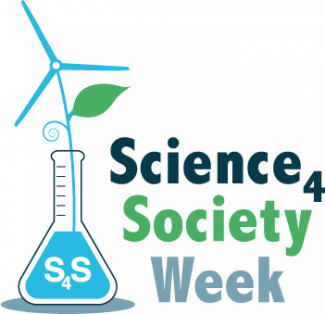Inspiring science education activities - without funding from the arms and fossil fuel industries.
Media release, 9 March 2017
Science4Society Week runs for its third year from 13th to 19th March 2017, providing an expanded range of inspiring education activities for young people, including our new ‘Design an Eco Home Explainer’ poster competition. The week was set up to provide an alternative to science education activities funded by the arms and fossil fuel industries, such as ‘The Big Bang Fair’.
S4S Week is organised by Scientists for Global Responsibility, a UK membership organisation which promotes science, design and technology for peace, social justice and environmental sustainability.
This year’s activities include:
- ‘Design an Eco-Home Explainer’ poster competition – the closing date is 19th March and winners will be announced then. The winning posters will be produced and used by an energy services company.
- Interactive lessons on science, technology and ethics. Students will take part in an exciting range of classroom activities including:
o planning renewable energy schemes
o calculating water footprints
o building model wind or water turbines, dams and flood resistant homes, and innovative transport solutions
o debating ethical issues in science, design and technology such as food security, antibiotic resistance, and waste reduction
- Trips/tours. School and university students will visit inspiring schemes, such as:
o community-run renewable energy projects, including hydro, solar and biomass systems;
o super-insulated eco-homes; and
o innovative technology sharing schemes, such as cohousing and car clubs.
Activities are designed to integrate with the national curriculum. In future years there will be more competitions, activities and events.
Co-ordinator of Science4Society Week, Dr Jan Maskell said, “There are many inspiring examples of science and technology being used to support environmental sustainability, social justice and peace, but mainstream education events often fail to include them. We aim to fill this gap, and also provide a space for debating what the ethical role of science and technology should be in our society.”
Contact: Dr Jan Maskell, 01524 812073
Notes
1. More information about Science4Society Week can be found at: http://www.s4s.org.uk
2. Scientists for Global Responsibility (SGR) is an independent UK membership organisation of about 750 natural and social scientists, engineers, IT professionals and architects. It was formed in 1992. SGR’s work is focused on several issues, including security and disarmament, climate change, sustainable energy, and who controls science and technology? For more information, see /
3. A summary of Science4Society Week 2016 can be found at: /resources/science4society-week-2016-brief-review
